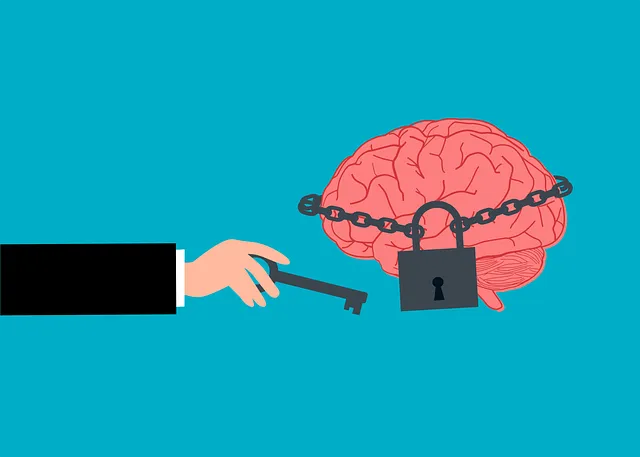In Colorado Springs, Kaiser Permanente's comprehensive Kaiser Permanente mental health coverage plays a vital role in crisis intervention, offering evidence-based practices like active listening and emotion validation. Their services, including therapy and support groups, address the growing need for accessible mental health care. Early detection education and direct crisis intervention techniques empower individuals and their loved ones to seek help promptly. Post-crisis care focuses on long-term recovery through personalized therapy, coping strategy integration, and prevention programs, promoting resilience and preventing future mental health crises in Kaiser Permanente mental health coverage Colorado Springs.
“In the heart of Colorado Springs, healthcare professionals play a vital role in crisis intervention, especially considering the region’s unique challenges. This comprehensive guide aims to equip medical practitioners with essential strategies for managing crises effectively. From understanding the basics of crisis intervention to navigating Kaiser Permanente’s mental health coverage in the area, each section offers valuable insights. Learn about identifying early signs, implementing direct intervention techniques, and providing post-crisis care, all tailored to support individuals’ long-term wellbeing, particularly focusing on the specific needs of Colorado Springs communities.”
- Understanding Crisis Intervention: A Brief Overview for Healthcare Professionals in Colorado Springs
- Kaiser Permanente Mental Health Coverage: What You Need to Know for Effective Support
- Identifying Signs and Symptoms: Early Detection as a Key Strategy in Crisis Management
- Direct Crisis Intervention Techniques: Step-by-Step Guidance for Safe and Effective Response
- Post-Crisis Care and Recovery: Supporting Individuals Towards Long-Term Wellbeing
Understanding Crisis Intervention: A Brief Overview for Healthcare Professionals in Colorado Springs

In Colorado Springs, healthcare professionals play a vital role in crisis intervention, offering support to individuals facing acute mental health challenges. Understanding crisis intervention strategies is essential for navigating these delicate situations effectively. Crisis intervention focuses on providing immediate assistance and stabilizing individuals during intense emotional periods, often leading to better long-term outcomes. This approach prioritizes safety, ensuring the individual’s well-being and mitigating risks associated with severe distress.
Kaiser Permanente, known for its comprehensive mental health coverage in Colorado Springs, offers guidance on evidence-based practices. Their resources emphasize the importance of active listening, validating emotions, and promoting self-care during crisis intervention. By combining these techniques with personalized care, healthcare professionals can facilitate emotional healing processes, boost confidence, and empower individuals to manage their mood effectively, fostering a supportive environment that encourages recovery.
Kaiser Permanente Mental Health Coverage: What You Need to Know for Effective Support

Kaiser Permanente, a renowned healthcare provider in Colorado Springs, offers comprehensive mental health coverage as part of its suite of services. This is great news for individuals seeking support for their mental wellness, especially during crises. The organization’s commitment to mental health awareness aligns with the broader public awareness campaigns focused on development and stress management—a critical aspect of overall well-being.
By providing accessible mental health coverage, Kaiser Permanente empowers its members to seek necessary care without undue barriers. This includes a range of services such as therapy, counseling, and support groups, all designed to help individuals navigate and overcome crises. The availability of these resources in one’s community, like Colorado Springs, can significantly impact positive mental health outcomes and contribute to a culture of open dialogue around sensitive topics.
Identifying Signs and Symptoms: Early Detection as a Key Strategy in Crisis Management

Early detection is a cornerstone of effective crisis intervention. Recognizing signs and symptoms of distress or impending crisis can be life-saving. Individuals experiencing a mental health crisis, such as those covered by Kaiser Permanente mental health coverage in Colorado Springs, may exhibit various cues. These can include drastic changes in behavior, sudden withdrawal from social activities, intense mood swings, or expressions of hopelessness and despair.
Mental health awareness plays a pivotal role in identifying these signs. Educating communities, especially close friends and family members, about crisis intervention guidance and available resources empowers them to step in proactively. Additionally, integrating social skills training can enhance individuals’ ability to recognize and communicate their needs, fostering an environment where help-seeking is encouraged and supported.
Direct Crisis Intervention Techniques: Step-by-Step Guidance for Safe and Effective Response

Direct Crisis Intervention Techniques offer a structured approach to handling immediate situations that require swift and safe responses. When faced with a crisis, whether it’s a personal emergency or a mental health issue, following a clear protocol ensures the well-being of both the individual in distress and those providing aid. Here’s a simplified step-by-step guidance:
1. Assess the Situation: The first step is to gather information calmly. Understand the nature of the crisis, the person involved, and any potential risks or hazards present. This initial assessment guides the entire intervention process, ensuring safety as the top priority.
2. Establish Safety and Trust: Creating a safe, non-judgmental space is crucial. Ensure physical security while also cultivating an environment of trust. Active listening and empathy are key; allowing the individual to express their feelings and fears freely fosters a sense of support and encourages open communication.
3. Offer Support and Validation: Acknowledge their emotions and provide reassurance. Simple phrases like, “I’m here to help” or “It’s okay to feel this way” can make a significant difference. Encourage them to share their experiences without fear of criticism, fostering a sense of self-worth and encouraging vulnerability.
4. Develop a Plan: Collaboratively work with the individual to create a crisis management plan. This involves identifying triggers, coping strategies, and resources available, including mental health services like those offered by Kaiser Permanente in Colorado Springs. The plan should be tailored to their specific needs and include self-care practices and compassion cultivation techniques to manage future crises effectively.
5. Implement the Plan: Assist them in executing the crisis management strategy. This might involve contacting relevant professionals, accompanying them to appointments (e.g., therapy or support groups), or simply being present during moments of intense distress. Regularly review and update the plan as their needs evolve.
Post-Crisis Care and Recovery: Supporting Individuals Towards Long-Term Wellbeing

Post-crisis care is a vital step in helping individuals recover and regain their wellbeing after facing traumatic or stressful events. This process extends beyond immediate crisis intervention and focuses on long-term mental health support. At Kaiser Permanente mental health coverage Colorado Springs, we recognize that every person’s journey to recovery is unique. Our dedicated team offers comprehensive post-crisis care tailored to individual needs, ensuring a smoother transition from crisis management to stable, improved mental health.
This phase involves continued therapy sessions, medication management, and various coping strategies such as conflict resolution techniques and depression prevention programs. By integrating these tools into daily life, individuals can learn effective mood management skills, fostering resilience against future crises. We believe that supporting individuals in the post-crisis period is key to preventing relapses and promoting lasting recovery.
In the face of crises, healthcare professionals in Colorado Springs play a vital role in providing immediate support and guiding individuals towards long-term recovery. By understanding crisis intervention strategies, recognizing early signs, and utilizing effective techniques, such as those outlined for Kaiser Permanente mental health coverage beneficiaries, we can enhance our response capabilities. This comprehensive approach ensures that those facing crises receive the necessary care, fostering resilience and promoting overall wellbeing in the vibrant community of Colorado Springs.






